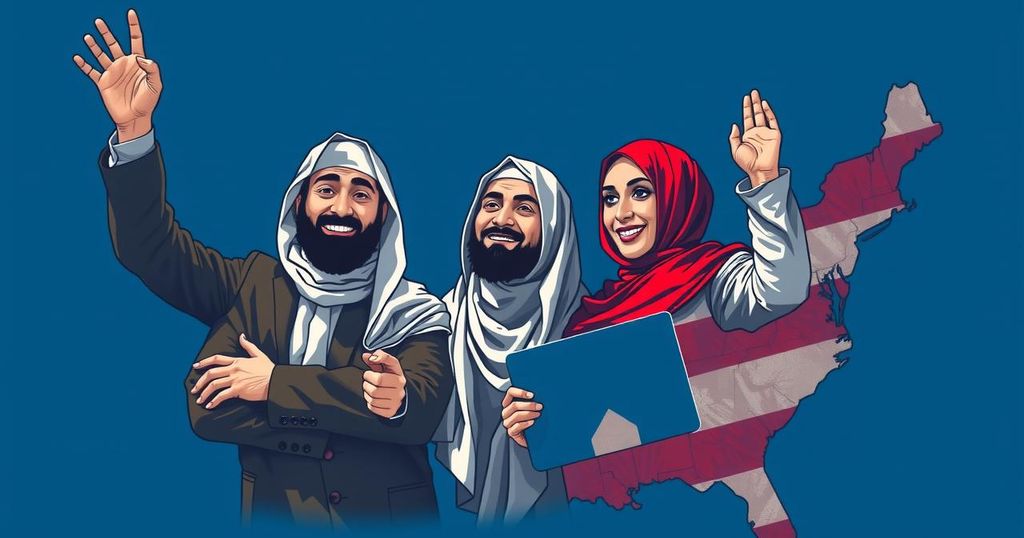Discontent with the Democratic Party’s approach to foreign policy, particularly regarding Israel and Palestine, is driving an increasing number of Muslim Americans to consider third-party candidates in the 2024 presidential election. Individuals such as Saad Husain and Javeria Farooqi express their frustrations with both major parties, leading them to support candidates like Jill Stein from the Green Party. This movement signifies a desire for political change and a moral stand against policies perceived as unjust, challenging the effectiveness of traditional party politics in addressing the concerns of the Muslim community.
As the 2024 US presidential election approaches, an increasing number of Muslim Americans, disillusioned with the Democratic Party, are contemplating votes for third-party candidates. Individuals such as Saad Husain, who has historically voted Democrat, have expressed their dissatisfaction with the party’s foreign policy, particularly in relation to Israel and Palestine. Husain cites President Biden’s military aid to Israel amidst ongoing conflict as a decisive factor prompting his support for the Green Party’s Jill Stein, marking the first time in three decades he will not vote for a Democratic candidate. Across several swing states, many Muslim Americans report a collective sense of frustration with the existing political dichotomy. Polling indicates that a significant portion of the Muslim community is considering alternatives to the Democrats’ well-established candidacy, mirroring sentiments expressed by voters like Javeria Farooqi and Nazia Kazi. Farooqi articulated a philosophical standpoint, emphasizing her moral conviction over fear of potential consequences from supporting Trump. Kazi critiqued the Democratic Party for perpetuating harm while condemning Trump, asserting that neither party effectively addresses pressing issues, particularly regarding Palestinian rights. Muslim Americans are increasingly vocalizing their support for a third-party voice, driven by a desire for meaningful representation and a break from traditional voting patterns that do not align with their values. As campaigns and community leaders emphasize the importance of diversifying political representation, discussions about their potential electoral impact grow ever more relevant in the context of the upcoming election.
The increasing inclination of Muslim Americans to embrace third-party candidates in the 2024 presidential election highlights the deeper fracture in their allegiance to the Democratic Party. A myriad of factors, including dissatisfaction with foreign policy, particularly in relation to Israel’s actions in Gaza, and a perceived lack of genuine engagement from Democrats, have propelled many to consider alternatives. A Pew Research Center study indicated that Muslims represent approximately 3.45 million in the US, with a substantial proportion residing in critical swing states where electoral outcomes are particularly sensitive to the distribution of votes. This demographic shift reflects broader concerns about the effectiveness of the existing political landscape to truly advocate for the values and priorities of the Muslim American community.
The growing trend among Muslim Americans to vote for third-party candidates underscores a significant shift in political sentiment within this demographic. As evidenced by their collective narratives, individuals are increasingly prioritizing their moral and ethical considerations over traditional party lines. The implications of this shift could be profound, potentially altering the electoral dynamics in key swing states and prompting broader discussions about the representation of minority groups in American politics.
Original Source: www.middleeasteye.net






